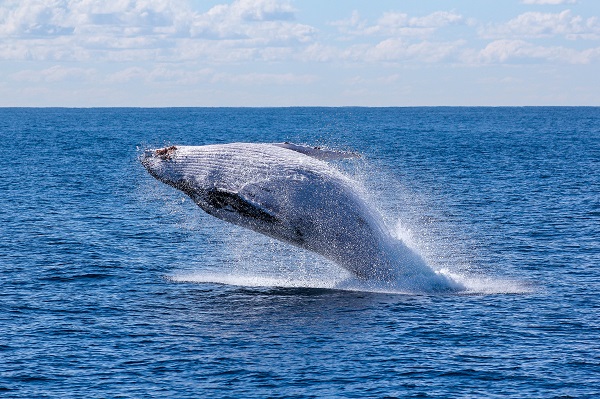
Blue Whales are undoubtedly fascinating creatures, and here are some fun facts that highlight their remarkable nature:
Record-Breaking Size: Blue Whales are the largest animals to have ever existed on Earth, dwarfing even the biggest dinosaurs. Some individuals can reach lengths of up to 100 feet (30 meters) or more and weigh as much as 200 tons.
Heart of an Elephant: The heart of a Blue Whale is massive, weighing as much as a small car and beating only a few times per minute. It is the largest heart of any known animal.
Tongue as Heavy as an Elephant: The tongue of a Blue Whale is so enormous that it can weigh as much as an adult elephant, making it one of the heaviest body parts in the animal kingdom.
Tiny Throat, Huge Appetite: Despite their enormous size, Blue Whales have relatively small throats, which can be only about the size of a grapefruit. They feed by gulping enormous amounts of water and then using their baleen plates to filter out krill and other small prey.
Loudest Animals on Earth: Blue Whales are known for their impressive vocalizations, which can travel for hundreds of miles underwater. Their calls are among the loudest sounds produced by any animal on Earth, even louder than a jet engine.
Social Singers: These giants are not solitary creatures; they often communicate with other Blue Whales through their songs. Their songs can last for hours and are believed to play a role in mating and maintaining social bonds.
Migratory Marvels: Blue Whales undertake some of the longest migrations of any animal, traveling thousands of miles between their feeding and breeding grounds. These migrations are essential for their survival.
Lifespan Mystery: The exact lifespan of Blue Whales remains a mystery, but it is estimated to be around 70-90 years. Their longevity is impressive given their enormous size.
Endangered Giants: Despite being the largest animals on Earth, Blue Whales are considered endangered due to past commercial whaling and ongoing threats from ship strikes and entanglement in fishing gear.
Unique Dorsal Fin: Blue Whales have a distinctive dorsal fin, which is relatively small and triangular. It is often one of the key features used to identify individual whales.
Fertilizing the Ocean: Blue Whales play a critical role in ocean ecosystems beyond just being top predators. Their nutrient-rich feces help fertilize the ocean, promoting the growth of phytoplankton, which forms the base of the marine food chain.
Ancient Species: These whales are believed to have appeared on Earth around 30 million years ago, making them one of the oldest species of baleen whales.
These fun facts highlight the incredible nature of Blue Whales, showcasing their uniqueness and the important role they play in our planet’s oceans.
Related Articles & Free Email Newsletter Sign Up
Snapping Turtles are One of the Largest Freshwater Turtles in North America
The American Alligator: A Vital Component of Ecosystem Balance


Comment here